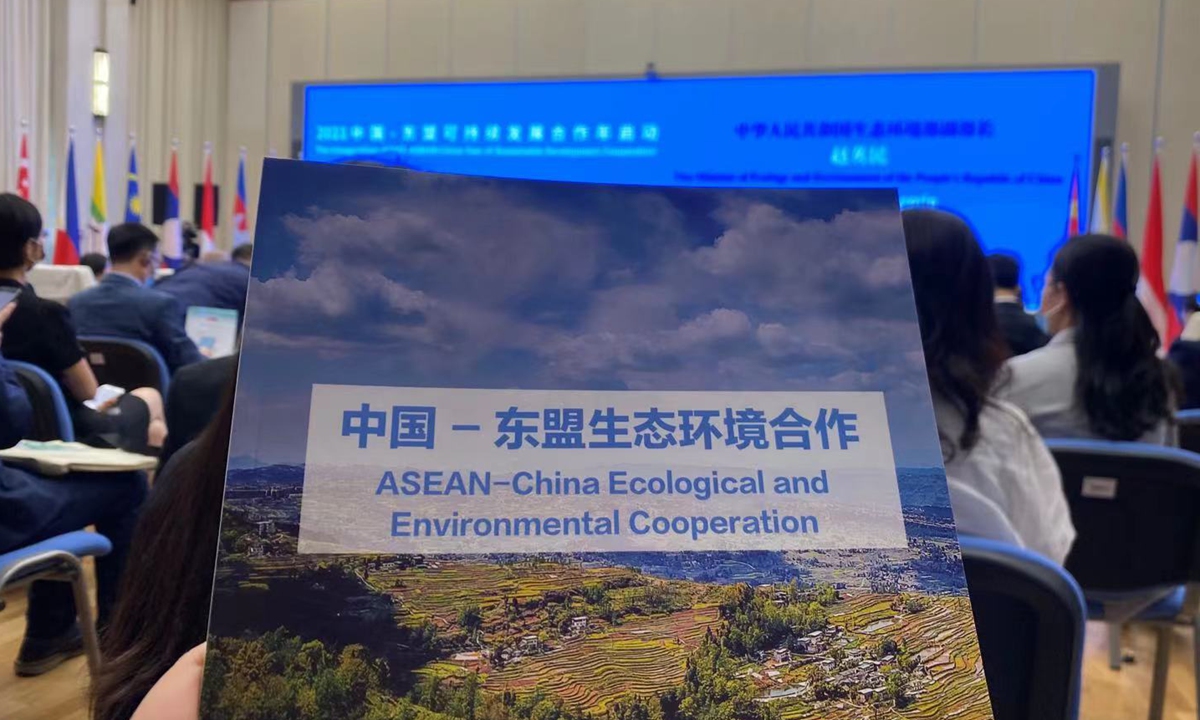
Photo:Shan Jie/GT
China and the Association of Southeast Asian Nations (ASEAN) on Friday initiated the Year of Sustainable Development Cooperation in Beijing to mark the 30th anniversary of dialogue between the two sides, underlining collaboration on issues such as climate change, biodiversity and the marine environment.
China and ASEAN will host a sequence of activities, including training and forums to enhance collaboration on various environmental issues as part of the Year of Sustainable Development Cooperation. There will be dialogue on the carbon market, seminars on mangrove conservation, cooperation on satellite remote sensing and a clean energy capability building program, the Global Times learned.
"Green development has become the consensus of China and ASEAN, and regional cooperation has been strengthened," Zhao Yingmin, vice minister of the Ministry of Ecology and Environment (MEE), said at the inauguration on Friday.
"2021 is a great year for the global environmental governance process. Holding the Year of Sustainable Development Cooperation is not only an important measure to deepen the strategic partnership between China and ASEAN, but also a platform for promoting regional and global environmental cooperation," Zhao noted.
Jose Santiago Sta. Romana, Ambassador of the Philippines to China, said that "global problems require global solutions. It is my hope that our conversations here today at this symbolic event can lead to meaningful actions that add to the cooperative efforts by ASEAN and China to attain sustainable development," he said.
In 2003, China and ASEAN signed the Joint Declaration on ASEAN-China Strategic Partnership for Peace and Prosperity, emphasizing cooperation on the environment and other areas.
In 2010, the former Ministry of Environmental Protection of China founded the China-ASEAN Environmental Cooperation Center, specifically organizing environmental cooperation matters under the ASEAN framework.
China and ASEAN adopted an action plan after that, which promoted cooperation on priority areas of environmental policy dialogue and exchange, environmental information sharing, environmentally sustainable cities, biodiversity and ecological conservation, exchange on environmental industries and technologies, capacity building on environmental governance, and joint research.




